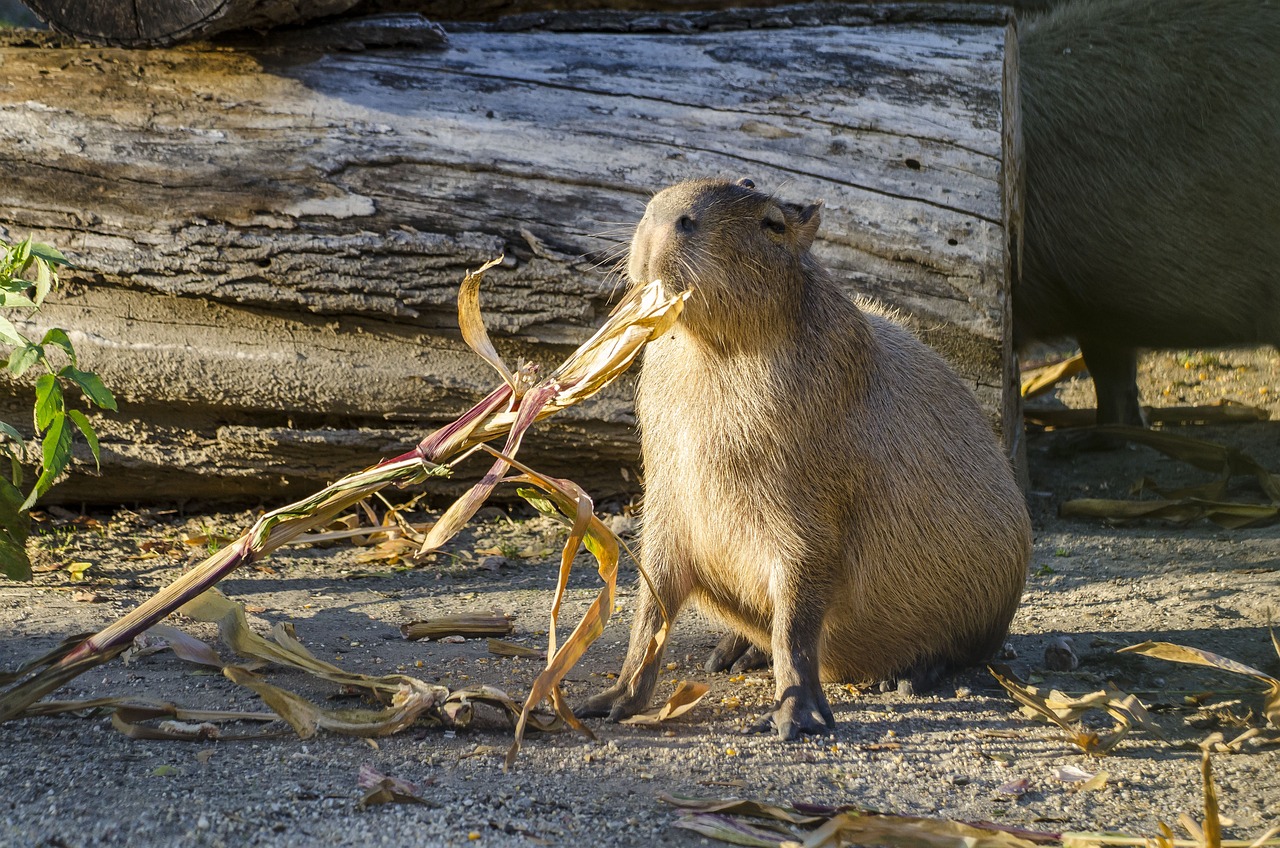Physical Address
304 North Cardinal St.
Dorchester Center, MA 02124
Physical Address
304 North Cardinal St.
Dorchester Center, MA 02124


Capybaras, the world’s largest rodents, have garnered attention and affection for their endearing appearance and gentle demeanor. These semi-aquatic creatures, native to South America, have found their way into the hearts of many exotic pet enthusiasts. However, the question looms large: Are capybaras easy to take care of?
While capybaras are endearing and sociable, they are not necessarily easy to take care of as pets. Their unique needs, stemming from their semi-aquatic nature and social behavior, make their care more demanding than that of traditional pets. Capybaras thrive in groups, and solitary individuals may experience stress and behavioral issues. Creating an environment that mimics their natural habitat, complete with a large water source, spacious grazing areas, and proper temperature and humidity control, is vital for their well-being.
In this guide, we will delve into the various aspects of capybara care, from their unique needs to the legal and ethical considerations of keeping them as pets.
Before embarking on the journey of capybara care, it’s crucial to understand their natural behavior and habitat. Capybaras are highly social animals, often found in groups of 10 to 20 individuals in the wild. They thrive in a semi-aquatic environment, with access to water for swimming and grazing on aquatic plants. Mimicking these conditions in captivity is essential for their well-being.
Capybaras are not solitary creatures and thrive in the company of their own kind. Keeping a single capybara as a pet could lead to stress and behavioral issues. Therefore, potential capybara owners should consider having at least two capybaras to ensure they can engage in their natural social behaviors.
Creating an environment that resembles their natural habitat is vital for capybara health. A capybara enclosure should include a water source large enough for swimming, as capybaras are excellent swimmers. Additionally, they require a spacious grassy area for grazing and plenty of shade to protect them from the sun. Maintaining the proper temperature and humidity levels is also crucial for their well-being.
Capybaras are herbivores, primarily feeding on grasses and aquatic plants. Their diet should consist of high-fiber grasses, hay, and fresh vegetables. It’s essential to provide a balanced diet to ensure they receive the necessary nutrients for optimal health. Monitoring their food intake is crucial, as obesity can be a common issue in captive capybaras.
While the idea of having a capybara as a pet may be enticing, it’s essential to navigate the legal and ethical aspects of owning one. Capybaras are not legal to keep as pets in all locations, and obtaining the necessary permits and permissions is imperative. Moreover, ethical considerations involve ensuring that the capybaras in captivity are acquired through legal and humane means, avoiding the support of the illegal wildlife trade.
Capybara ownership is regulated by local, state, and national laws. In some places, they are classified as exotic animals, requiring special permits and adherence to specific guidelines. Prospective capybara owners must research and comply with these regulations to avoid legal consequences and ensure the welfare of the animals.
Capybaras should only be acquired through reputable breeders or rescue organizations that prioritize the well-being of the animals. Purchasing capybaras from the illegal wildlife trade contributes to the exploitation and endangerment of these species. Responsible ownership involves supporting ethical practices and ensuring that capybaras are sourced legally and ethically.
Caring for capybaras goes beyond providing a suitable environment and diet. Regular veterinary check-ups and prompt attention to any health concerns are essential for their overall well-being.
Finding a veterinarian with expertise in exotic animals, specifically capybaras, is crucial. Regular health check-ups can help identify and address any potential issues early on. Additionally, veterinarians can provide guidance on nutrition, vaccinations, and preventive care to ensure the capybaras lead healthy lives.
Capybaras are susceptible to various diseases, including dental problems, respiratory issues, and skin conditions. Maintaining a clean and hygienic environment, providing a balanced diet, and monitoring their behavior are essential aspects of disease prevention. Owners should be vigilant and seek veterinary assistance promptly if any signs of illness are observed.
While capybaras are undoubtedly charming creatures, potential owners should be aware of the challenges associated with their care.
Creating a suitable habitat for capybaras requires a significant amount of space. Their need for both land and water means that a spacious and well-designed enclosure is essential. Not all prospective owners have the resources or space to meet these requirements.
The social nature of capybaras can be both a blessing and a challenge. Ensuring that they have compatible companions is crucial, but introducing new capybaras to an existing group can be a delicate process. Owners need to be prepared for potential conflicts and provide ample space for each individual to establish their territory.
Capybaras have a relatively long lifespan, typically ranging from 8 to 10 years in the wild and potentially longer in captivity. Prospective owners should consider the long-term commitment and be prepared for the responsibilities associated with caring for these animals throughout their lives.
Capybaras are undeniably captivating creatures, but the decision to keep them as pets comes with significant responsibilities. From creating an environment that mirrors their natural habitat to navigating legal and ethical considerations, potential owners must be well-informed and committed to providing the best possible care for these unique animals. While capybaras can bring joy and companionship, their well-being should always be the top priority in any responsible owner’s mind.